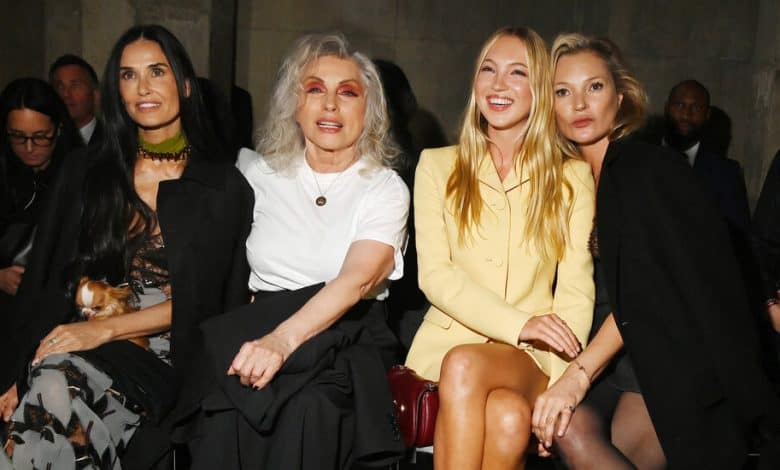The Great Gucci Gamble Comes to London

As the sun set over the River Thames on Monday night, London’s favorite supermodel Kate Moss struck a pose for the mob of paparazzi gathered outside the soaring industrial heft of the Tate Modern. A stream of stars soon followed, including Dua Lipa, Paul Mescal, Debbie Harry, Solange Knowles and Demi Moore, her tiny Chihuahua Pilaf tucked under her arm like a handbag. They had gathered for Gucci and its creative director, Sabato De Sarno. The budget — and the stakes — could not have been bigger as he presented his debut cruise collection.
Gucci is one of the most recognizable fashion brands in the world, generating almost 10 billion euros (about $10.8 billion) in revenue last year. But Gucci has been scrambling to recover after a sobering drop in its fortunes in recent years. The impact for Kering, its parent company, is considerable given that Gucci is responsible for half of the organization’s sales and two-thirds of its profit. Last month, Kering reported that Gucci had a sales slump of almost 20 percent in the last quarter, leading to a rare profit warning and sliding share price.
This is not the fault of Mr. De Sarno, who was appointed 15 months ago and whose designs have only recently started arriving in stores following his Milan Fashion Week debut in September. However, the critical reception of his men’s and women’s wear collections — with a pared-back focus on crisp, contemporary silhouettes and accessories — has been muted, the concern being that he is too safe and straightforward. Certainly, they are less flamboyant than those of his predecessor, Alessandro Michele. But will the fashion industry and its increasingly jittery investors give Mr. De Sarno and his more minimal-leaning vision more time to rebuild the Gucci juggernaut?
If the ideas that emerged from the cruise collection, called “We’ll Always Have London,” are anything to go by, they should. The house of Gucci has longstanding roots in London — its founder, Guccio Gucci, worked as a baggage porter at the Savoy hotel, observing the luggage and lifestyles of the international elite. In his show notes, Mr. De Sarno wrote that he had found himself inspired anew by a city that “has welcomed me and listened to me.”
The Tate Modern’s vast underground concrete caverns known as the Tanks had been decorated with more than 10,000 verdant plants that blossomed from the ceiling, floor and pillars. Models made their way through the rooms in clothes that felt lighter and more covetable than those in his debut collections — short suede coats and capes, immaculately tailored denim, and shifts and skirts lavishly embroidered with paillette daisies. There were plenty of nods to British fashion woven through the show, especially the pearls, knee-length pencil skirts and slouchy and sensible beige anoraks that could have been worn by Queen Elizabeth II. Dresses and coats covered with squares made of a shimmering bead fringe were a reference to Scottish plaids.
